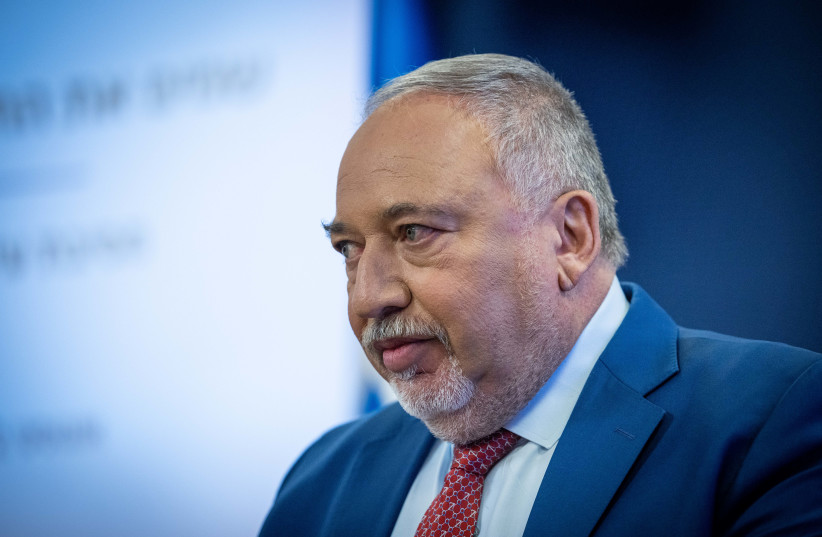The ongoing negotiations on a new salary agreement between the Finance Ministry and the Teachers Union have swelled into a political hot potato.
With the start of the school year looming and the negotiations stuck, many politicians who chose to stay away from the issue are now taking sides. Most are siding with the teachers and leaving Finance Minister Avigdor Liberman out to dry, so if the teachers end up striking come September, he will suffer the political consequences.
Liberman is in a precarious political situation. At first, he pitched himself as the good guy by insisting on upping teachers’ salaries based on merit rather than seniority.
Liberman, true to his right-wing economic views, viewed the union as a body that was merely flexing its muscles in order to receive more money for its senior, and thus more powerful and well-connected, members.
What was Liberman's plan?

His plan, called “Students in the Center,” included adding up to NIS 2,100 to the base salary of new teachers versus a NIS 400 raise for teachers with 30 years of experience. Teachers at all levels would receive a NIS 600 raise for excellence.
This, in Liberman’s eyes, is the way forward. New teachers need the largest salary hike so that the system will attract new talent, and all teachers, including those with 30 years of experience, need to prove their excellence if they want to be rewarded with higher salaries.
His arguments seemed convincing at first, but with time, the union’s position came into clearer focus. The union argued that when it comes to education, seniority, by definition, adds quality – teachers learn more and develop as time goes on.
Thus, low salaries are not just a problem for young teachers but for senior ones as well, and a NIS 400 price hike is not enough to cover the experience and expertise that senior teachers have acquired, the union argued.
Both sides have a case. They could and should have arrived at an agreement by now. The problem is that in an election season, everything is political.
How might this end?
If Liberman caves in to the teacher’s demands, his image as a staunch defender of a meritocratic system will be tarnished. While he succeeded in pushing through reforms of imports and agriculture despite strong opposition of unions and special interest groups, failure in the ultimate test against one of the strongest unions and its fierce leader, Yaffa Ben David, will damage his reputation.
However, if schools do not open on September 1, everyone will be looking for someone to blame. Sure enough, as the issue grew more urgent and politicians began to field questions about it, they could no longer remain on the sidelines.
Education Minister Yifat Shasha-Biton, Housing Minister Ze’ev Elkin, Aliyah and Integration Minister Pnina Tamano-Shata and others called on Prime Minister Yair Lapid to intervene. Lapid did, and met with all of the parties involved.
His involvement did not lead to an immediate solution, and on Monday he tweeted, “I do not like the way [people] are talking about senior teachers in these negotiations. The senior teachers are the ones who educated generations of students, [and] in whose hands we put our children’s well-being.... They are not a burden on the system but are its pillar, they are people who dedicated their lives to education. There is nothing more beautiful than this.”
"The senior teachers are the ones who educated generations of students, [and] in whose hands we put our children’s well-being.... They are not a burden on the system but are its pillar, they are people who dedicated their lives to education. There is nothing more beautiful than this."
Prime Minister Yair Lapid
Defense Minister and leader of the National Unity Party Benny Gantz also came out in favor of the teachers, as did Health Minister and outgoing Meretz chairman Nitzan Horowitz, who one-upped the others and attacked the Yisrael Beytenu chairman.
“National policy is not under the authority of bureaucrats in the Finance Ministry, but is under the government’s authority,” Horowitz charged. “The Finance Ministry does not decide how to distribute the money. It is responsible only for the execution.”
Liberman did not back down. No politicians, including him, should be involved in the negotiations, he argued. Especially in an election season, it is best to leave the issue to the professionals – the ministry’s director of salary and employment agreements, Kobi Bar-Natan, on one side, and Teachers Union representatives on the other.
“I intend to continue to fight against any political intervention in the negotiations between the Finance Ministry and the Teachers Union. If someone wants to force a political decision on the professional echelon, he will first need to fire the finance minister,” Liberman wrote on Twitter on Tuesday.
Liberman is going all-out on the issue. If his ministry manages to pull off an agreement that will include at least some of his suggestions, he will gain precious political points for what will appear as fiscal responsibility and even for improving Israel’s underperforming education system. But with the rest of the field lining up against him, if the issue is not resolved by September 1 and students remain at home, Liberman could pay a very heavy price.
